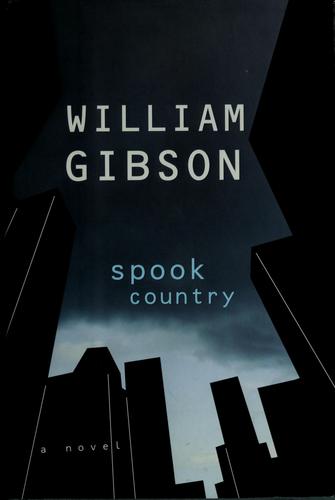Keith Stevenson reviewed Spook country by William Gibson
Review of 'Spook country' on 'Goodreads'
3 stars
There is much to compare between Gibson’s impressive return to form, Pattern Recognition, and Spook Country. The latter concerns Hollis Henry ex-band member of ‘Curfew’ now a freelance journalist who has been hired by technology magazine Node to work up an article on ‘locative art’; basically, this is art that exists in cyberspace (and only seen through networked goggles), which is tagged by GPS to a specific terrestrial location – an example being the dead body of River Phoenix ‘lying’ outside the Viper Room on Sunset. But things are not, of course what they seem for Hollis who, like Cayce in Pattern Recognition, is actually working for Blue Ant, the shadowy non-company that was so interested in The Footage. Now it seems they are interested in something else. Something that is being tracked in a very roundabout way by Bobby Chombo, reclusive mathematical genius and GPS-hacker. Meanwhile in New York, Tito, a member of a boutique espionage family, is delivering obsolete i-pods to an old man with connections to Tito’s father, who worked for the Cuban equivalent of the KGB. Tito in turn is being shadowed by Brown, a humourless spook who’s sequestered drug addict Milgrim away in a hotel room because of his affinity for translating Volapuk, an idiomatically obtuse Russian SMS language.
The thing about reading a Gibson novel is that you feel instantly cooler. You’re in amongst people who operate on a different plane, where things mean more, and actions carry ever-greater risks. This is backed up by a portrayal of a technological sub-culture coming at us like news from the cusp: the idea of locative art is so groovy, if it isn’t already happening, it should be. The action builds slowly but the prose had a vivid sense of place and time, I didn’t feel it dragged. I just wanted to drink all the detail in. The other thing about Gibson’s writing here is what Adam Browne called its ‘eerie precision’. Tito lives his life by a ‘systema’ on which his survival literally depends from moment to moment. Everything he does, every reaction and muscle twitch is guided and designed to bring about a pre-determined effect. Brown, the undefined spook, also lives a precise life, analysing the actions of the Illegal Facilitators he shadows and marshalling his forces to bring them down in a surgical strike. And Gibson’s prose repeatedly focuses our attention on simple, vivid detail which again evokes an exact effect.
And so we move towards finding out what the ‘something’ is that everyone, in some way or another, is interested in – and why. And that’s where it all falls apart. Unlike Pattern Recognition the story does not reach a satisfying end. Gibson said in an interview for Amazon that he didn’t know what the ‘something’ was until late in the piece. I wish he had. He does such a brilliant job of building us up for a huge pay-off. But, as it turns out, the pay-off just isn’t sufficiently mind-blowing. I mean I know sometimes that’s what life is like, but the end of a 300+ page novel just CAN’T be.

